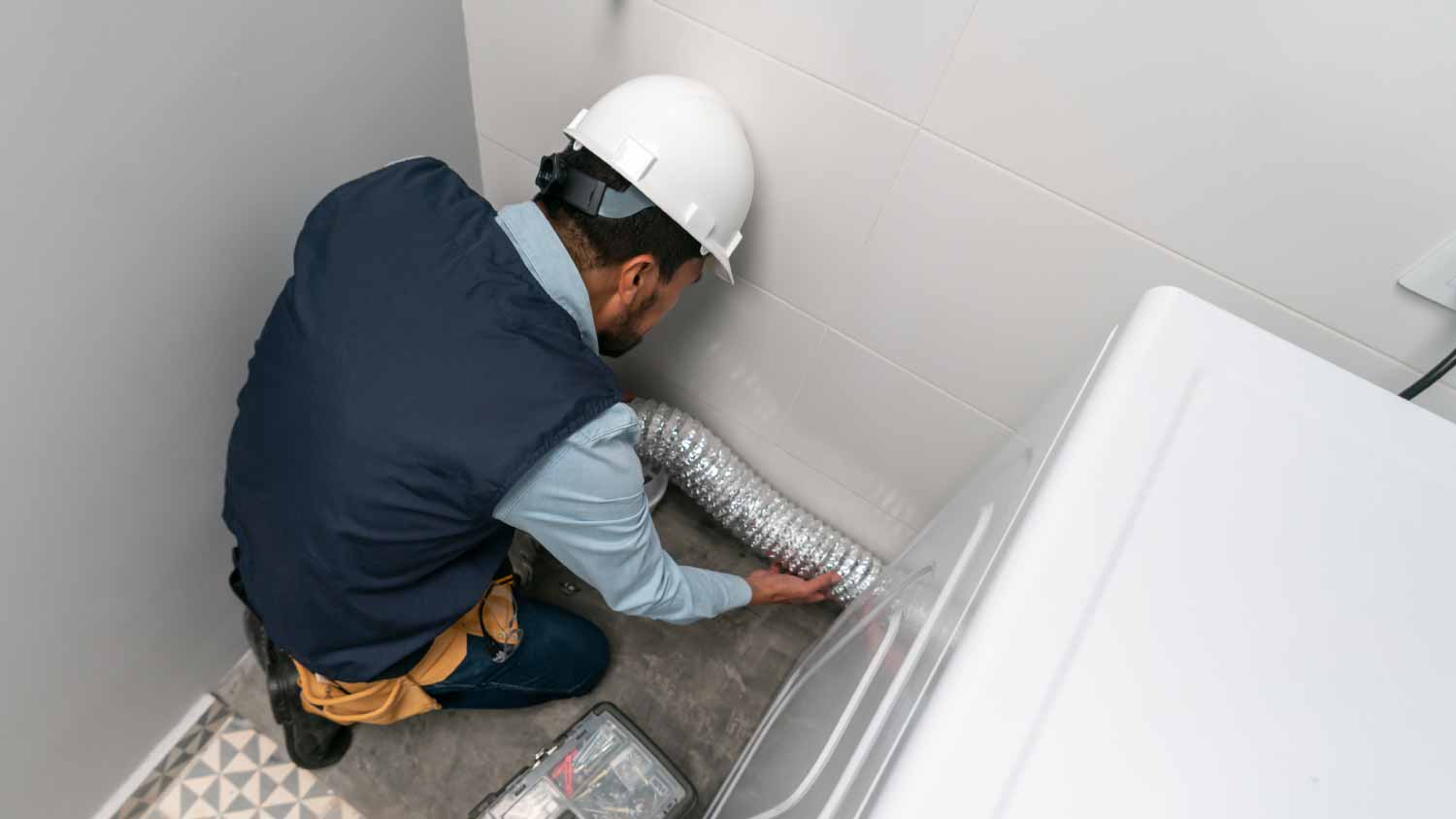
What you’ll pay in Columbus, OH, for furnace repairs depends on many factors. Here’s a breakdown of what can go wrong and the cost to fix those issues.
Find a specialist


Clothes dryers are a common cause of house fires, causing roughly 15,000 emergencies in the U.S. annually, according to the National Fire Protection Association. Faulty vents and ducts pose other risks, too, so it’s a good idea to hire a qualified pro when your dryer starts acting up. We’ll break down who to call for dryer vent repairs, when to get in touch with them, and more below.
Given the risks associated with a broken dryer vent or duct, a quality repair is crucial. The main reason you should hire a dryer vent technician instead of tackling a repair yourself is because they have the expertise to ensure that the job is done correctly. Dryer vent technicians may also spot issues that homeowners don’t notice. While availability for these specialists differs by where you live, it should be possible to find a dryer vent technician in your area. Repairs cost $50 to $125 per hour on average. Depending on the issue, it can actually be cheaper to replace a dryer vent than repair it. Expect to pay $100 to $300 to have a pro install a dryer vent replacement.
Get your HVAC system serviced and inspected at least once per year. For extra peace of mind, call in a pro twice annually: once before the hottest months of the year and again before the coldest time of year.
Even though we recommend contacting a pro for dryer vent repair, some problems can be fixed by the homeowner, especially if they have handiwork experience. Two of the easier issues to fix are a dryer vent that has been detached from the wall or has a small hole in it.
To reattach, you’ll need to re-clamp the hose using a screwdriver and possibly duct tape. You can patch a hole with duct tape as a short-term solution, but the heat and moisture from the dryer will weaken the duct tape over time, so it might be easiest to replace the hose from the start. Issues besides these are likely more challenging and require a pro.

Yes, HVAC technicians are another useful resource if you notice that your dryer isn’t working properly. They may not have the same level of expertise on dryer ducts as a specialized dryer vent technician, but they should still be able to address any issue affecting the appliance—or, at least, know a good person to contact for the issue. HVAC technicians are more accessible if you can’t find a dryer vent technician nearby.
Many general contractors are also capable of repairing dryer ducts. It’s possible a general contractor even installed your washer-dryer unit. If you already know a contractor that you like working with, you can contact them again for dryer duct repair. If not, you can find a local general contractor in your area.
The method of repair depends on the type of issue going on with the dryer. That can include a tear, blockage, compressed tube, broken exhaust flap, and more. If you and the pro elect not to replace the dryer vent, a general repair process goes like this:
Turn off power to the dryer
Move the dryer away from the wall
Disconnect the hose
Repair a crimped hose or patch a tear
Clean the dryer vent
Reconnect the hose
Return dryer to the original position
From average costs to expert advice, get all the answers you need to get your job done.

What you’ll pay in Columbus, OH, for furnace repairs depends on many factors. Here’s a breakdown of what can go wrong and the cost to fix those issues.

A blower door test can identify air leaks in your home and help boost energy efficiency. Use this blower door test cost guide to see what your test will total.

Whole-house humidifier costs vary based on the type and size of the unit, along with other factors. The price might be worth it for people living in dry regions.

If you’re thinking about an alternative to a traditional HVAC system, you may want to consider a heat pump. Read on for more about heat pump systems.

Condensation on air vents suggests something is wrong with your HVAC system. Learn how to stop condensation on air vents through preventive measures.

You’ll need to get creative if you want to run your portable AC in a windowless room. Here’s how to vent a portable air conditioner without a window.